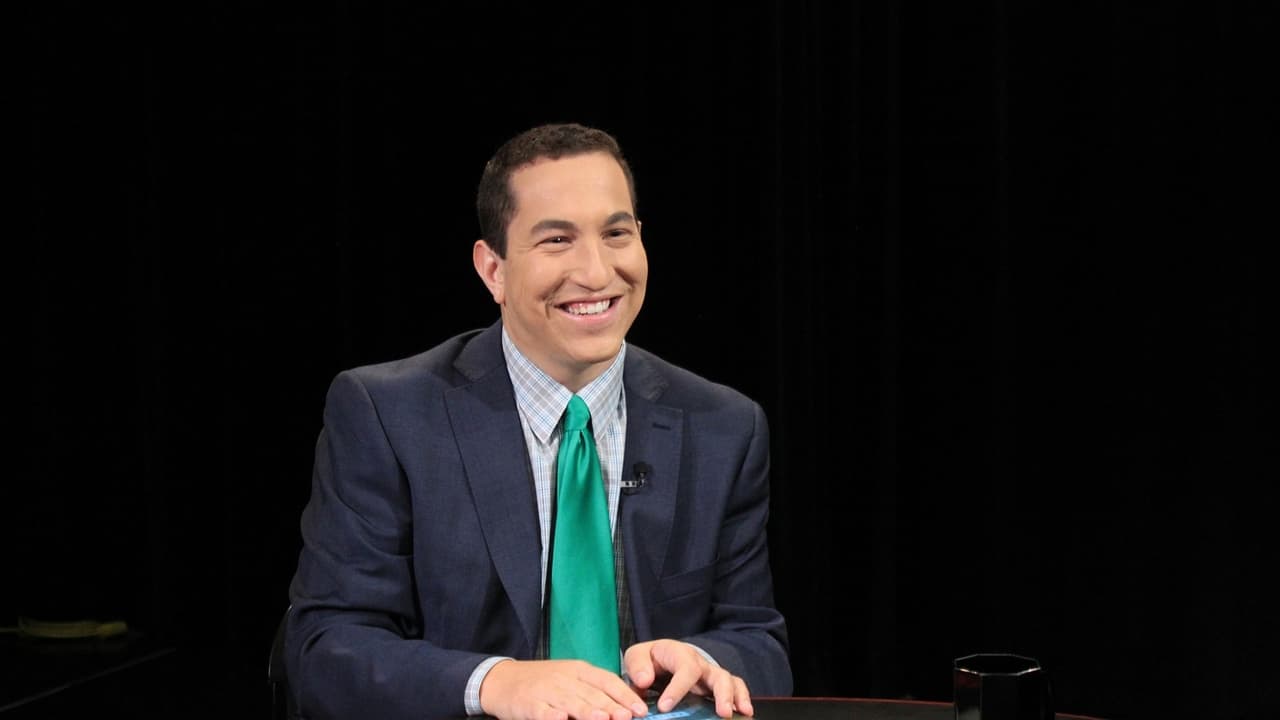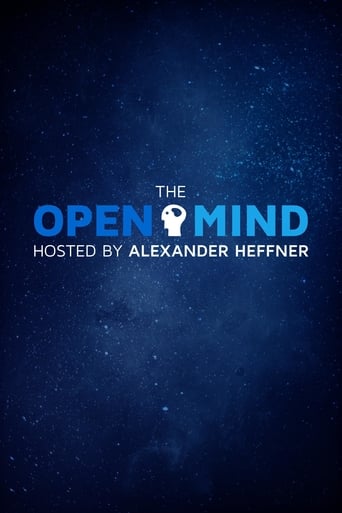The Open Mind (1956)
The Open Mind
1956 / TV-G
This public affairs talk show is a thoughtful excursion into the world of ideas across politics, media, technology, the arts, and all realms of civic life. First broadcast in 1956, it explores challenges of the digital age, American politics and emerging issues.
Seasons & Episode

Nicholas Buccola on his book "The Fire is Upon Us: Baldwin, Buckley, and Race in America."

Justin Driver of Yale Law on constitutional law and the struggle to preserve democracy.

Vassar College president Elizabeth Bradley on free speech and engaged pluralism.

Robert Boyers on "The Tyranny of Virtue: Identity… and the Hunt for Political Heresies."

Science journalist Lydia Denworth on the evolution, biology, and power of friendship.

Patricia Roberts-Miller of University of Texas on demagoguery and its historical origins.

Wired reporter Andy Greenberg discusses the next wave of Russian cyber crimes.

Wesleyan University’s Sonali Chakravarti on her book "Radical Enfranchisement."

NBC News reporter Brandy Zadrozny on coronavirus, anti-vaxxers, and conspiracy-mongers.

Mother Jones’ Ali Breland on combating bigotry online and breaking up new media monopolies.

Information warfare expert Molly McKew on foreign interference in US elections.

Center for Responsive Politics’ Anna Massoglia on campaign finance accountability issues.

NBC News dystopia reporter Ben Collins on exposing deception and companies that enable it.

QAnon Anonymous host Travis View on QAnon conspiracy theorists and what motivates them.

Jennifer Mercieca on "Demagogue for President: The Rhetorical Genius of Donald Trump."

Nico Gendron of The Wall Street Journal on engaging rural youth in a Local News Fellowship.

Online News Association CEO Irving Washington on the future of digital news.

Materials scientist Ainissa Ramirez on her new book "The Alchemy of Us."

Rachel Graham on tracking COVID-19 from its inception to inform public health on Twitter.

Sarah Kendzior on her book "Hiding in Plain Sight" and the threat of authoritarianism.

UVA professor and coauthor of "Making Young Voters," John Holbein on civic participation.

Pulitzer Prize winning science journalist Laurie Garrett on predicting COVID-19.

Lincoln Project’s John Weaver on holding people in power accountable to their oaths.

"Humankind" author and historian Rutger Bregman on hope for a prosocial society.

Garry Kasparov and Uriel Epshtein of the Renew Democracy Initiative on authoritarian rule.

Mother Jones voting rights correspondent Ari Berman on the pandemic and voting turnout.

Dr. Jeffrey Matthews, of U of Chicago Medicine, on hospitals’ response to the pandemic.

Jack Jackson on "Law Without Future: Anti-Constitutional Politics and the American Right."

Atlantic Magazine’s Adam Harris on John Lewis and a new Civil Rights Movement in America.

University of Chicago psychologist Katherine Kinzler on her new book “How You Say It.”

Republican presidential campaign veteran Stuart Stevens on his new book "It Was All a Lie."

Minister, activist and Princeton scholar Nyle Fort on re-imagining a post-pandemic America.

Cong. (Ret.) Katie Hill on her new book "She Will Rise" and the battle for true equality.

Carl Bergstrom on "Calling Bull____: The Art of Skepticism in a Data-Driven World."

Election security advocate Jennifer Cohn on election oversight and hand-marked paper trail.

Yale University immunologist Akiko Iwasaki discusses an efficacious COVID vaccine.

CNN’s Brian Stetler on the danger of disinformation on Election Night, Week, and Month.

U.S. democracy and authoritarianism.

Civil Rights leader and MSNBC’s Rev. Al Sharpton on the mobilization of Black voters.

MIT scholar Sinan Aral on how to regulate social media to have a constructive impact.

Lawyers’ Committee for Civil Rights Under Law’s Kristen Clarke on justice at the polls.

Julie Swarstad Johnson and Christopher Cokinos on their new book "Beyond Earth’s Edge."

CSIS fellow Jon Hillman on his new book "The Emperor’s New Road" and relations with China.

Neuroscientist Lisa Feldman Barrett on her book "Seven and a Half Lessons About the Brain."

Lincoln Project’s Mike Madrid on Georgia’s Senate run-off election and defeating Trumpism.

Historian Ruth Ben-Ghiat on Trump’s defiance of the 2020 election results and history.
This public affairs talk show is a thoughtful excursion into the world of ideas across politics, media, technology, the arts, and all realms of civic life. First broadcast in 1956, it explores challenges of the digital age, American politics and emerging issues.
Watch Trailer
Free Trial Channels























